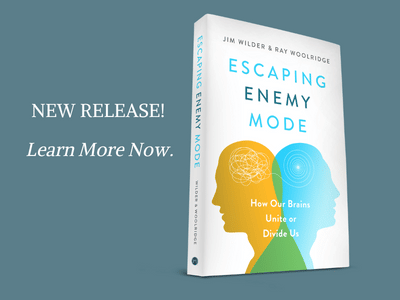- In the pattern of the Lord’s Prayer, Jesus teaches us to honor God’s name and declare his nature even before we confess our sins. The gospel of Jesus and God’s grace do not begin and/or end with sin management.
- It is ironic that repentance means a “change of thinking” – which is a major emphasis of LM.
- It is a good and biblical thing for human beings to acknowledge God’s presence in the world and give him thanks. The apostle Paul states that humanity has devolved into futile thinking due, in the first place, to the lack of honoring him and offering him thanks.
Romans 1:21 – For although they knew God, they did not honor him as God or give thanks to him, but they became futile in their thinking, and their foolish hearts were darkened.
- Honoring him for who he is and thanking him for his good grace and generous provisions can be first steps back into relationship with him through Jesus Christ. “Or do you presume on the riches of his kindness and forbearance and patience, not knowing that God’s kindness is meant to lead you to repentance?” (Romans 2:4) Repentance is not only away from sin, but also toward God.
- In the story of the centurion Cornelius, who was neither a Jew nor a Christian, but a God-fearing gentile, God accepted his prayers and almsgiving to the poor. After this, he and his entire household were led into saving faith through the gospel of Jesus that Peter was sent to share with them.
Acts 10:3-4 – About the ninth hour of the day he saw clearly in a vision an angel of God come in and say to him, “Cornelius.” And he stared at him in terror and said, “What is it, Lord?” And he said to him, “Your prayers and your alms have ascended as a memorial before God.
- LM is certainly about inspiring people to repent for their sins. In fact, a case can be made that LM helps people face personal sins and their fallout more head on and squarely than many traditional evangelistic/discipleship approaches that labor hard to bring people to a single point of “decision” to repent. They often do not encourage people to look more deeply into allowing God to repair the damage their past sins have done throughout their entire beings and to their interpersonal relationships.
- LM creates much opportune space to welcome the Holy Spirit to move upon people’s souls and minds and be the One who brings conviction of sins.
John 16:8 – And when he comes, he will convict the world concerning sin and righteousness and judgment….
- God is greater than our hearts and knows all things, which implies that we do not. (1 John 3:20) It is in interacting with him as our Creator and Redeemer that we can see our faults and failures more clearly and overcome them through Christ. It was when Isaiah saw the majestic glory of God, that he could see his own uncleanness and receive God’s simple, yet powerful, provision for it.
Isaiah 6:1,5 – In the year that King Uzziah died I saw the Lord sitting upon a throne, high and lifted up; and the train of his robe filled the temple…And I said: “Woe is me! For I am lost; for I am a man of unclean lips, and I dwell amid a people of unclean lips; for my eyes have seen the King, the Lord of hosts!”
- Many of the people being reached by LM have already repented of and confessed their sins. Yet, they remain stuck in immaturity. To help them move on to maturity, they need to build upon the foundation of their “repentance from dead works”.
Hebrews 6:1 – Therefore let us leave the elementary doctrine of Christ and go on to maturity, not laying again a foundation of repentance from dead works and of faith toward God….
- Many people have been taught, via emphasis, that if we repent from our sins, confess them to God and receive his forgiveness, then the sole source of our problems has gone away. This approach makes it easy for people to live in denial of the unresolved pains of terrible injustices done against them and paralyzing traumas of living in a fallen world that trap them in spiritual, emotional and relational immaturity. Jesus has come to fully heal the brokenhearted – forgiving sins, resolving the pains of injustices done against us and healing us of past traumas – to transform us progressively into his image.









